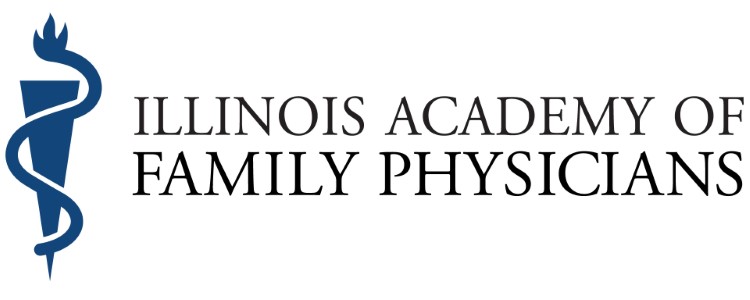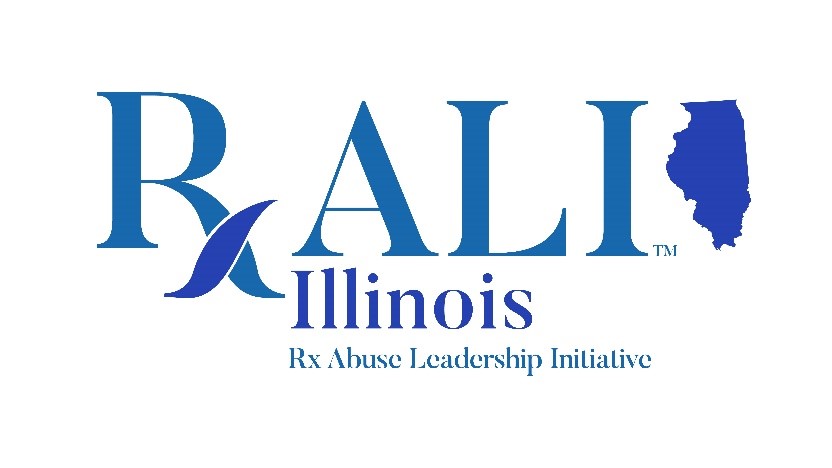Attacks on Federal Discount Drug Program 340B at a time of National Crises
 Dr. Hirschfeld is an IAFP member who practices at Erie Family Health Center
Dr. Hirschfeld is an IAFP member who practices at Erie Family Health Center
Follow her on Twitter @Ahirschfeld5 #Protect340B
As our national health crises drag on, family physicians seem to be drowning in stories of loss-- loss of employment, loss of loved ones, loss of childcare, and finally loss of hope. We hear these stories from our patients every day in the clinic and hospital. We bear witness to their suffering; we care for them. Yet in the face of incredible adversity, pharmaceutical companies are threatening the existence of a critical prescription drug program called 340B. We must take action to protect this valuable program.
At my community health center (CHC) in Chicago, Erie Family Health Centers, we rely on the 340B Drug Pricing program to provide medications to our uninsured patients. Recently, a 38 year-old woman with type 2 diabetes presented for a ‘check up’, not having been to the doctor for six months because she recently lost her health insurance and employment amidst the pandemic. She was not surprised that her A1c was 12.8; she had not taken any of her medications in months. Through the 340B program at her local Walgreens I was able to prescribe all her medications, including metformin and long-acting insulin. Like so many, she was unaware of this prescription drug program until she needed it. The 340B program allowed her to purchase vital medications and possibly saved her from serious complications of her diabetes.
My patient is one of many struggling to afford life-saving medications. As we know from our conversations with our patients and by the data, cost and income can be deciding factors in a patient’s ability to take their medication. Even prior to the COVID-19 pandemic, a study published in JAMA showed cost-related underuse of insulin to be roughly 25% among surveyed patients (1). Tragically, patients die every year from insulin rationing (2).
Background on 340B
340B was established in 1992 by Congress to enable CHCs and safety net hospitals to “stretch scarce federal resources as far as possible, reaching more eligible patients and providing more comprehensive care” (3 340B history, 4, HRSA). This prescription drug program supports healthcare and medication access for these patients in two ways. One is to provide discounted medications to patients that receive care with Covered Entities (participating CHCs and safety net hospitals). The other creates a mechanism for these Covered Entities (CEs) to capture and invest these savings in more comprehensive care for patients.
The 340B statute obligates drug manufacturers to provide medications at a defined discounted price. Community Health Centers pass this discount along to their medically-underserved patients; they are able to pay far less at the pharmacy counter because their 340B provider bought the drug at the 340B discounted price. For example, the patient above is now using a Levemir insulin pen, which costs an uninsured patient upwards of $500 per month. With 340B discounts at our contract pharmacy, her insulin price is less than $10/month. Without 340B, uninsured patients that require basal and bolus insulin and/or a GLP1-receptor agonist would otherwise pay thousands of dollars per month for their medication alone.
340B also supports community health by allowing health centers to re-invest the difference in price between insurance pricing and 340B discount pricing for medications. This is not a loophole and it does not change the price that the patient pays at the pharmacy. Utilizing these savings to expand access and services is the intended goal of the 340B program-- to help fund safety-net care for communities of at-risk and vulnerable patients. The 340B program savings at Erie Family Health Centers are reinvested in telehealth, Medication-Assisted-Treatment for substance use disorders, care management, HIV/AIDS treatment support, Public Benefits navigation and more. Considering the barriers our patients continue to face along with COVID-19; this expansion in services is crucial.
In 2010, the US Health Resources & Services Administration (HRSA) implemented official program guidance stating that covered entities can use an unlimited number of contract pharmacies (3, 5 Primary Care policy). This enables patients to pick up their medications at a participating pharmacy in their neighborhood, rather than traveling to a specific pharmacy for the medications. Erie has 12 clinic sites and serves patients in 185 ZIP codes in Chicago and surrounding suburbs. For many patients, restricting 340B medication discounts to a single pharmacy creates insurmountable barriers to accessing affordable medications.
Attacks on 340B
Starting in mid-2020, pharmaceutical companies began to challenge the 340B program in a variety of ways. Eli Lilly was the first when they announced that effective July, 1 2020 they would no longer make certain doses of their branded Tadalafil (an erectile dysfunction drug) available at the 340B discounted price. This was not due to shortages or issues with supply. A lack of response from HHS and HRSA emboldened other pharmaceutical companies, who followed with similar actions. Since July 2020, several other pharmaceutical companies have refused or made it difficult for CEs to access 340B pricing at contract pharmacies. Meanwhile, Sanofi is now requiring the release of sensitive claims data as a condition on the ability to continue accessing the 340B price.
Yet another threat to the 340B program is a rebate program proposed by the firm Kalderos, which requires covered entities to purchase those medications at full price. If Kalderos then considers the claim appropriate, CEs receive a portion of the amount paid in the form of a rebate. This places a significant financial strain on CHCs at a time when many are struggling to continue to provide care to patients. And so, what started with a restriction on certain dosages of tadalafil has now blossomed into a full-scale assault on the 340B program and community health. This fact sheet gives a summary and timeline of the various threats to the program.
Legislative and legal responses
In response to these attacks on the program, in the fall of 2020, major provider organizations, including the National Association of Community Health Centers (NACHC), filed lawsuits against Health and Human Services (HHS). The NACHC lawsuit focused on implementing an alternate dispute resolution process (ADR), which went into effect January 13, 2021. Since then, NACHC and other organizations are pursuing rulings through this ADR process which may take weeks or months to resolve.
After months of deliberation, HHS finally released strong messaging around contract pharmacies. The HHS Advisory Opinion in December 2020 stated in no uncertain terms that drug manufacturers must provide 340B discounts to 340B providers, even when the drugs are dispensed via contract pharmacies. While the HHS Advisory Opinion does not have the force of law, it clarifies that HHS views these manufacturer actions as a violation of 340B rules, which could potentially result in steep monetary penalties for overcharges (6 HHS advisory). To date, no manufacturers have reversed their actions, but instead have filed their own lawsuits in response.
As these lawsuits and the dispute resolutions drag on, our patients continue to struggle. In the best cases, patients are switched from one medication to the next as 340B formularies change. When manufacturers pull their drugs out of contract pharmacies and rewrite the established program rules, patients must travel further, and often pay more to fill their prescriptions. In the worst cases, patients lose access to these medications or, as my patient above had done, simply lose hope in trying to obtain them, even forgoing doctor’s visits.
As the AAFP noted in their letter to HRSA on October 21, 2020 (7 AAFP letter), family physicians make up half of the primary care physicians working in CHCs which primarily serve low-income patients, people of color and those hit hardest by this pandemic. We must, as family physicians, use our voice to call for speedy action on behalf of our patients. If we do nothing, the attacks will continue and eventually the 340B program will not exist to support our patients or the community health centers we desperately need to help bring our country out of this crisis.
What can we do?
Without the 340B program, CHCs and safety net hospitals will not be able to provide affordable medications to patients and may lose the ability to provide the comprehensive care that their patients need. We must tell our patients’ stories about 340B and the positive impact that it has on community health. Please reach out to your provider organizations, colleagues, contacts in the media, social media and policymakers to encourage them to #Protect340B. Download this infographic from NCAHC with information you can use and share in your conversations and here are some talking points specific to Illinois from the Illinois Primary Health Care Association.
Family physicians and our allies must speak up for our patients. I was fortunate to share our experiences with the Chicago Tribune recently. This toolkit is a great place to start: Health Center Advocacy Network 340B toolkit: https://www.hcadvocacy.org/340b-advocacy/
2022 Update: A new Illinois law, effective July 1, will prevent payers and pharmacy benefit managers from treating 340B drugs differently than other drugs or excluding providers and their contract pharmacies from a network based on being part of the program. IAFP was proud to support this bill.
References:
1 Herkert D, Vijayakumar P, Luo J, et al. Cost-related insulin underuse among patients with diabetes. JAMA Intern Med. 2019;179(1):112-114. doi: 10.1001/jamainternmed.2018.5008.
2 Jones, Sarah. Another Person has Died after Rationing Insulin. July 15, 2019.
https://nymag.com/intelligencer/2019/07/another-person-has-died-from-rationing-insulin.html
4. HRSA. 340b Drug Pricing Program. Accessed January 18, 2021.
5 This Week in Primary Care Policy. January 15, 2021. https://cdn.ymaws.com/www.wphca.org/resource/collection/6FEA5C54-08A2-41D6-9E75-9768E63F48AC/1-15-2021_-_Weekly_Policy_Update.pdf
6 HHS Advisory opinion 12/2020
https://www.hhs.gov/about/news/2020/12/30/hhs-releases-advisory-opinion-clarifying-that-340b-discounts-apply-to-contract-pharmacies.html
7 LeRoy, Gary. Letter to Thomas Engles HRSA, Accessed January 18, 2021. https://www.aafp.org/dam/AAFP/documents/advocacy/prevention/risk/LT-HRSAImplementationEO13937-102120.pdf
Additional resources:
Mirga, Tom. 340B Report article, January 14, 2021. “Lilly Asks Court to Shield it From ‘Crippling’ 340B Sanctions.”
New York Times article. 12/15/20
https://www.nytimes.com/2020/12/15/us/politics/drug-makers-340b-program.html
McDuffie, Ariel. Grassroots Pharmacists. The Basics of 340B and the Current Attacks on the Federal Drug Discount Program. blog.https://grassrootsrph.com/2020/09/27/the-basics-of-340b-and-the-current-attacks-on-the-federal-drug-discount-program-guest-writer-ariel-mcduffie/



